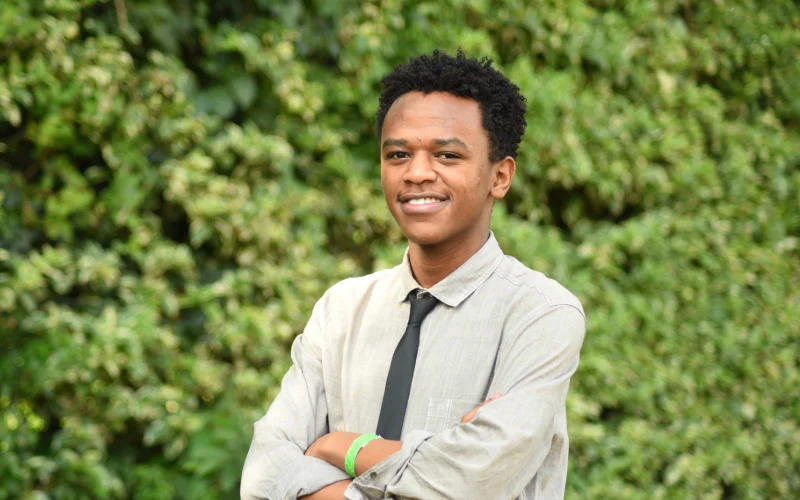Raymond Saitoti
MSc Behavioural Science
2024/25
Learn more about Raymond's background and experience as an AKO scholarship holder in the Department of Psychological and Behavioural Science.

The learning process at each stage of the process emphasised the importance of critically examining ideas from multiple perspectives which are far and wide, ranging from neuroscience to psychology
Hi Ray! Tell us a bit about yourself and your background — where are you from, and what were you doing before you came to LSE?
Hello! I am from Nairobi, Kenya, which is where I spent most of my formative years. Prior to joining the programme I studied Statistics for my undergraduate. It was an open curriculum which gave me many opportunities to explore my interests in the social sciences and humanities. Afterwards I spent some time working in the small to medium sized enterprise space for some time. It was after observing the trends in the use of interventions to address economic issues that I became curious about LSE and behavioural science.
What unique qualities of LSE and the MSc programme stood out to you and made it the ideal place to deepen your understanding of behavioural science?
The nudge towards the MSc programme came about from my encounters with current students from LSE discovery sessions I had attended back in 2021. I got the impression that the School dedicated lots of resources to support the members of its community and got some pointers about what life in London is like. I would like to send a big thank you to Alice Else, Loris Lysiotis and Maria Kazantzi from the student recruitment team for facilitating that. In those forums, I got the chance to better understand what the school looks for in applicants and how to go about the application process.
Can you share a course, project, or person at LSE that sparked a shift in your thinking or helped you see the world differently?
I would say the PBS course seminars were quite instrumental in shaping my outlook on the many topics that we looked at. We dissected many research papers to try and understand what it is exactly that motivates human actions. The PB405 series with Professor Liam Delaney and Dr Christian Krekel stand out the most because the discussions were always lively. They gave me something to look forward to every week. This and the fact that the learning process at each stage of the process emphasised the importance of critically examining ideas from multiple perspectives which are far and wide, ranging from neuroscience to psychology.
Were there any moments during your LSE experience that tested your limits? How did you manage those times and what did they teach you?
Oh, this is a good one! One challenge I am really enjoying is working on my dissertation. At first, it can feel a bit overwhelming because it is longer than anything many of us have worked on before. To handle it, I have broken the work down into smaller parts which are more manageable. Putting in steady hours each week helps me keep going even through the technical and repetitive phases. Picking a topic I am passionate about has made a big difference as well. I am learning that tackling big projects is about sticking with it step by step and finding your own reasons to keep going. The process so far has shown me how important it is to be patient, but also to enjoy the journey on the way to the finish line.
What tools, insights, or experiences from your studies do you plan to use to contribute to progress or transformation in your community or country?
A real-world application that intrigued me the most would be in designing financially inclusive systems to reduce vulnerability, using behavioural economics principles. Kenya was one of the earliest pioneers of mobile banking adoption, but financial literacy still remains low. For example, many people might not know what an annual percentage rate (APR) is, and formal institutions may not always simplify such information. Another related area I can think of is the simplification of convoluted tax systems. Helping people to act in their best interests by ensuring the right choice is the easiest one to choose would truly be worthwhile.
Looking back on your experience, what guidance would you give to future AKO Scholars to help them make the most of their time at LSE?
In no specific order and off the top of my mind this would be on the importance of living authentically. Make time for reflection whichever way works best for you. Another one would be to find ways to help others and make a conscious choice to act where and if you can to influence an outcome, relationship or process for the better. Don’t forget to cultivate positive connections with your professors, LSE staff and your peers. Lastly, attend as many talks and sessions as you can. These are all important factors that contribute to a great overall experience.
What three words best capture the essence of your year in the Department of Psychological and Behavioural Science?
Transformative, Rigorous, Unforgettable
.